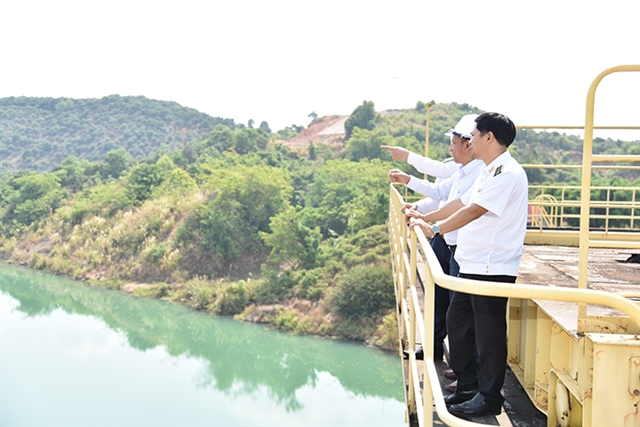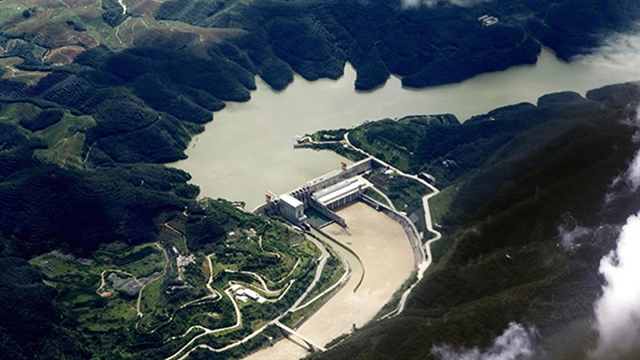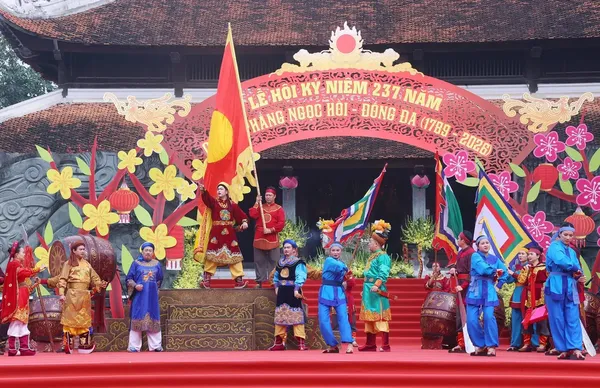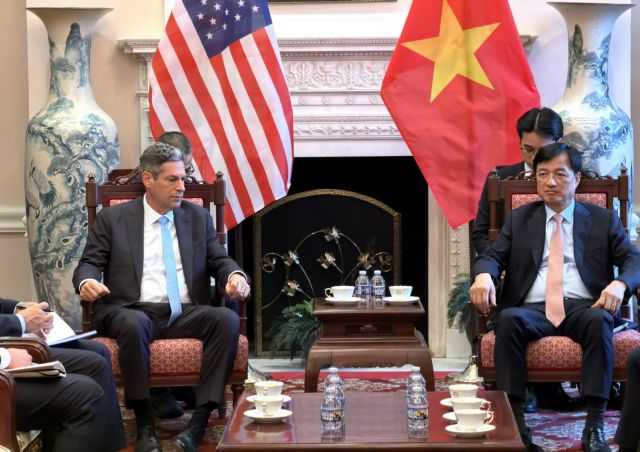.jpg) Environment
Environment


|
| Vietnamese water management auditors on Mekong River Basin earlier this year. Photo Courtesy of SAV |
HÀ NỘI — An environmental audit on water management in the Mekong Delta River Basin has shown that Việt Nam is on track to meet the United Nations' Sustainable Development Goals (SDG).
The results are thanks to the efforts of the State Audit Office of Việt Nam (SAV), and the wider Asian Organisation of Supreme Audit Institutes (ASOSAI), in sharing knowledge and increasing capacity for environmental audits.
The audit was carried out as the region faces the unpredictable challenges of climate change, environmental degradation and unsustainable water management, which could affect the livelihood of more than 65 million people.
The Hà Nội Declaration, approved at ASOSAI’s 14th Assembly, aims to counter saltwater intrusion into the Mekong Delta caused by rising sea levels. The SAV proposed to the National Assembly chairman and Prime Minister that the environmental audit be conducted to assess the Declarations implementation.
The State Audit Office of Việt Nam was joined by Supreme Audit Institutions (SAI) from Thailand and Myanmar in the Mekong River Basin audit. Technical support was also offered by leading experts from the Canadian Audit and Accountability Foundation and the World Bank.
In Việt Nam, from March 3 to April 29, 2021, the audit was carried out with help from the Việt Nam Mekong River Committee, the Ministry of Natural Resources and Environment, the Ministry of Industry and Trade, and the Ministry of Agriculture and Rural Development.
It was carried out in 12 provinces and cities in Mekong Delta, including; An Giang, Đồng Tháp, Tiền Giang, Sóc Trăng, Cần Thơ, Trà Vinh, Cà Mau, Hậu Giang, Bến Tre, Gia Lai, Kon Tum and Đắk Lắk.
The audit results showed that between 2016 and 2020, Việt Nam succeeded in increasing the effectiveness and efficiency of Mekong River water resource management, in line with the United Nations’ sustainable development goals.
The country improved its legal framework on water resource management with the Law on Water Resource and Law on Environmental Protection, as well as Government decrees and other legal guidelines.
Việt Nam also improved procedures to monitor the use and exploitation of water resources. Regular water resource inspections were conducted, helping to crack down violations.
About VNĐ 42.54 trillion was spent on investigating, forecasting and evaluating water resources as well as irrigation, drainage and activities against saltwater intrusion.
Việt Nam has fulfilled its commitments to the Agreement on Cooperation for Sustainable Development of the Mekong River Basin 1995 (Mekong Agreement 1995), the Procedures for Exchange and Sharing of Information and Data; and many other activities within the framework of the International Mekong River Commission (MRC).
Việt Nam participated in the development and implementation of the MRC, which is aimed at creating practical and useful recommendations on the reasonable use of water resources.
The country sent officials and experts on water resources to participate in MRC's activities. These activities include; strengthening cooperation on maintaining the minimum flow of the Sesan - Sre Pok River from Cambodia, and the signing of a memorandum between An Giang Province and the provinces of Kandal and Takeo in Cambodia on the management of water quality, waste sources and biodiversity in the Mekong River Basin.
It also allocated funds for the implementation of the Lower Mekong Basin Development Strategy for the period 2016 - 2020, developed by the MRC.
However, the audit also revealed shortcomings in water resource planning and water management cooperation. These failings were caused by agencies and localities failing to provide sufficient data on water management, and local and central governments not being involved enough in managing water resources. As a result, untreated wastewater continued to be discharged into the environment.
The assessment for the granting of licences to exploit riverbed minerals in some localities did not take into account minimum distance from the shoreline, an important aspect in riverbank protection. This does not comply with the Law on Water Resource 2012 and Law on Environmental Protection 2014.
The construction of hydropower plants on the Mekong River basin led to the overexploitation of minerals. Also ignored was the calculation of mine reserves, capacity, and time of exploitation. No environmental rehabilitation and restoration was done after mineral exploitation.
In addition, the SAV reported difficulties and obstacles in the implementation of the 1995 Mekong Agreement. The audit results also show that currently, only four out of six countries in the Mekong River Basin have signed the agreement.
Legal documents, such as regulations, manuals, and technical guidelines, are a basis for regulating the use of water resources on main and tributary streams, including hydropower construction and water diversion. Hydropower plants tend to be built in tributary streams in MRC member countries. — VNS

|
| The objective of the audit was to evaluate both the management of water resources and compliance with the international commitments on the management, use and protection of water resources in the Mekong River Basin. — Photo Courtesy of SAV |




